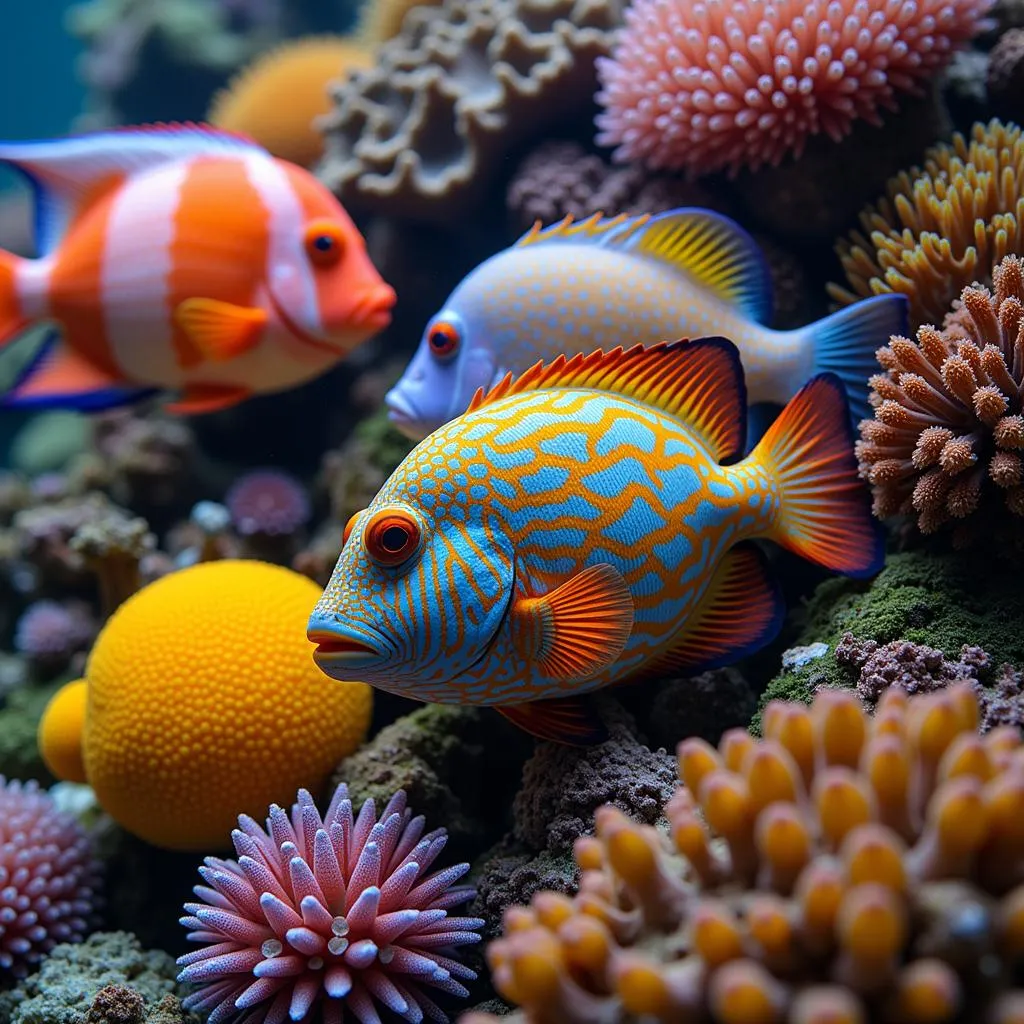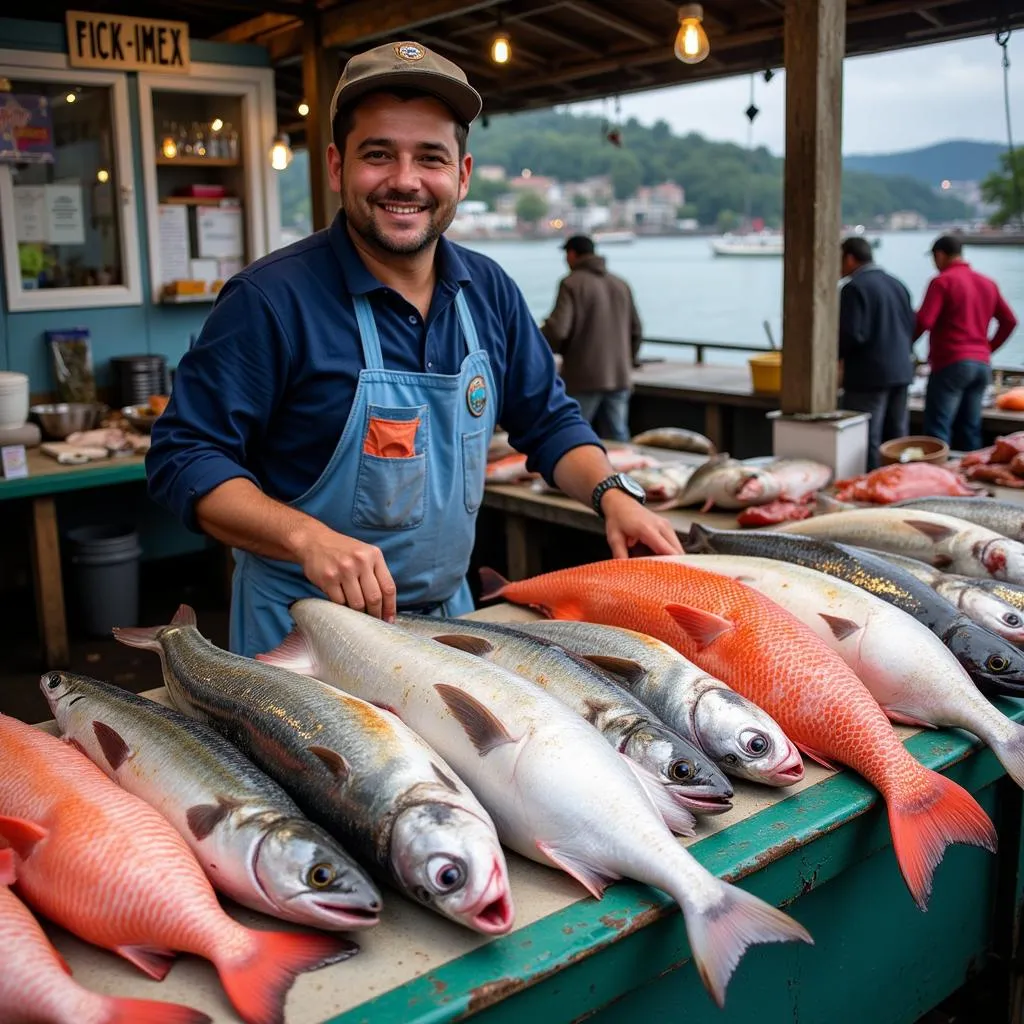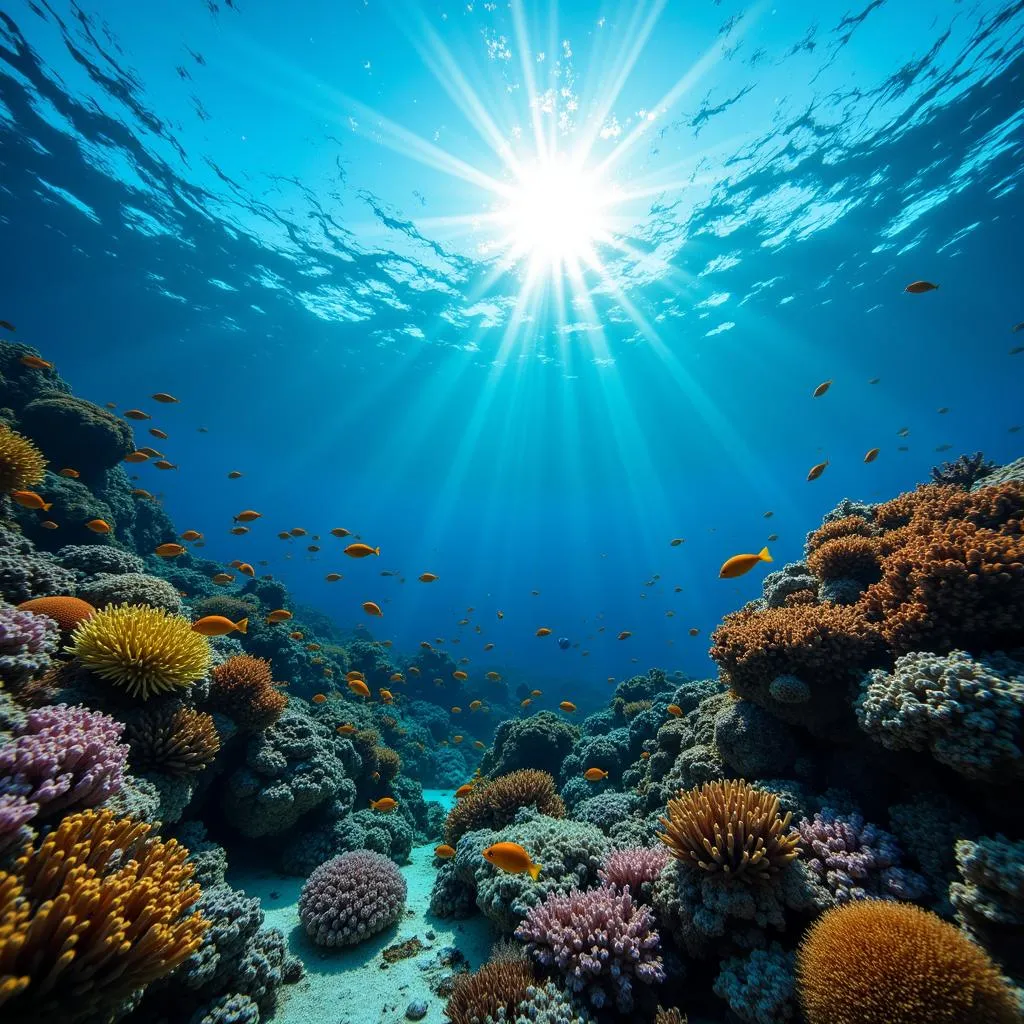Reef Food: a fascinating and diverse culinary world awaits those intrigued by the bounty of the ocean. From delicate fish to vibrant corals, the reef teems with life that sustains an intricate food web, offering a unique and sustainable source of nourishment for both marine life and humans alike. Let’s dive in and discover the wonders of reef food.
What Exactly is Reef Food?
Reef food encompasses a wide array of edible marine species that inhabit coral reefs or rely on them for sustenance. Think of it as a vibrant underwater marketplace where various organisms, from tiny plankton to large predatory fish, interact in a delicate balance of predator and prey. This delicate ecosystem provides a rich source of food for countless marine creatures, including:
- Fish: Colorful reef fish like snapper, grouper, parrotfish, and surgeonfish are staples in many coastal cuisines.
- Mollusks: Clams, oysters, mussels, and scallops find refuge and food within the reef’s nooks and crannies.
- Crustaceans: Crabs, lobsters, and shrimp are highly sought-after delicacies that call reefs home.
- Seaweeds and Algae: These photosynthetic organisms form the base of the reef food chain and offer a surprising range of flavors and textures for adventurous eaters.
 Colorful Reef Fish
Colorful Reef Fish
The Importance of Sustainable Reef Food Practices
Coral reefs are incredibly biodiverse ecosystems, often referred to as the “rainforests of the sea.” However, these fragile environments face increasing threats from pollution, climate change, and overfishing. Sustainable reef food practices are essential to ensure the health of the reefs and the long-term availability of these valuable food sources. Here’s how you can make a difference:
- Choose Sustainable Seafood: Look for certifications like the Marine Stewardship Council (MSC) label, which signifies responsible fishing practices.
- Avoid Overfished Species: Research and avoid consuming species experiencing population decline, such as certain types of tuna and sharks.
- Support Local Fishermen: Opt for locally sourced seafood from fishermen committed to sustainable practices.
 Sustainable Seafood at a Local Market
Sustainable Seafood at a Local Market
Exploring the Culinary Delights of Reef Food
Reef food offers a world of culinary possibilities. Its diversity allows for endless creativity in the kitchen, from light and refreshing ceviches to hearty seafood stews.
Here are a few popular reef food dishes from around the globe:
- Poisson Cru: This Polynesian delicacy features raw fish marinated in citrus juices, coconut milk, and vegetables.
- Fish Curry: A staple in many coastal regions, fish curry often incorporates fragrant spices, coconut milk, and local vegetables.
- Grilled Lobster with Garlic Butter: A classic preparation that highlights the sweet and delicate flavor of lobster.
“When sourcing reef food, freshness is paramount,” advises Chef Jean-Pierre Dubois, a renowned chef specializing in sustainable seafood. “The flavors are at their peak when the ingredients are freshly caught and prepared with care.”
Reef Food: A Sustainable Future
By understanding the interconnectedness of life on a reef and embracing sustainable practices, we can ensure that future generations can enjoy the bounty of the ocean. Choosing reef-friendly options supports the delicate balance of these ecosystems and ensures the long-term health of our planet.
 Thriving Coral Reef Ecosystem
Thriving Coral Reef Ecosystem
FAQs About Reef Food
1. Is all reef food safe to eat?
No, not all reef creatures are edible. Some may be poisonous or harmful if consumed. Always research and follow local guidelines for safe and sustainable seafood consumption.
2. How can I tell if the seafood I’m buying is sustainable?
Look for certifications like the MSC label, inquire about sourcing practices, and support businesses committed to sustainability.
3. Can I find reef food options inland?
Yes, many restaurants and seafood markets source sustainable reef food options from reputable suppliers.
4. What are some simple ways to incorporate reef food into my diet?
Try grilling fish with lemon and herbs, making a seafood salad, or experimenting with fish tacos.
5. What can I do to help protect coral reefs?
Reduce your carbon footprint, support organizations working to conserve reefs, and educate yourself and others about the importance of reef conservation.
Need Assistance?
Have questions about reef food or need help finding sustainable options? Contact Mina Cones Food at Phone Number: 02437655121, Email: minacones@gmail.com, or visit us at 3PGH+8R9, ĐT70A, thôn Trung, Bắc Từ Liêm, Hà Nội, Việt Nam. Our dedicated customer service team is available 24/7 to assist you.